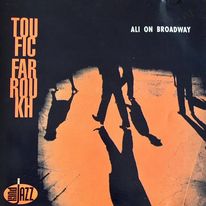
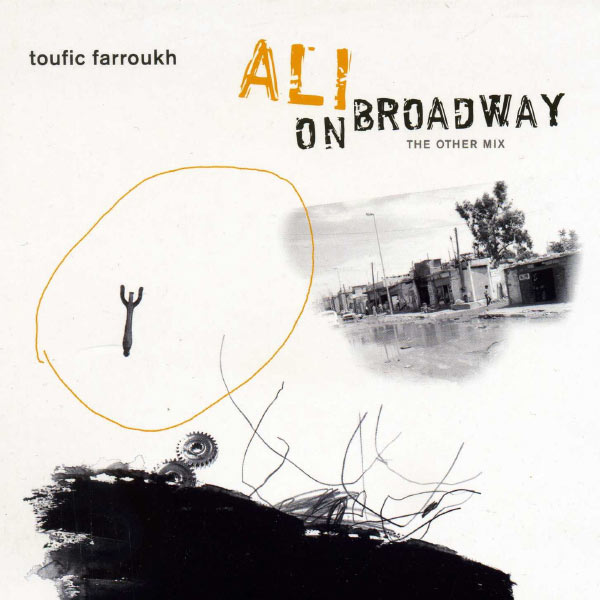
‘’Ali On Broadway ‘’ KOJ / Melodie (1994)
Toufic Farroukh a choisi le jazz comme domaine de prédilection – un jazz coloré, aux accents orientaux et parfait reflet de son cheminement artistique ancré dans une double culture et ouvert aux différentes expressions artistiques contemporaines, comme la danse, le théâtre ou le cinéma. Dans ses propres albums, il assume, loin des théories et des concepts, ses diverses influences et crée avec une belle tranquillité, un univers personnel et authentique. Dans “Ali on Broadway”, enregistré en 1993, des couleurs orientales surgissent loin des mélanges artificiels auxquels bien des musiciens adeptes de la World Fusion ne savent pas toujours résister
“Ali Broadway, the other mix” CDM & Harmonia Mundi (2004),
est un album sauvé ou doublement sauvé, si l’on peut dire, puisque les bandes analogiques étaient techniquement quasi perdues, et qu’en parvenant à les récupérer et en les réécoutant une à une, Toufic Farroukh les redécouvre. L’évidence alors s’impose : Ali on Broadway doit être mixer du nouveau, non seulement dans de conditions meilleures, mais aussi avec une oreille toute autre. Ce qui était encore à l’époque chose incongrue, la rencontre musicale entre l’Occident et l’Orient, fait aujourd’hui partie de notre champ sonore. Il n’en demeure pas moins que cette rencontre ne va pas de soi. Le voyage d’Ali entre ces deux mondes, ces deux cultures, rapproche l’imaginaire du vécu, les confrontant, les entremêlant, brouillant les pistes, jouant d’elles…un voyage précisément, c’est-à-dire : chemin à parcourir, un chemin que l’on finit plus de parcourir !
Composed, arranged & produced by Toufic Farroukh
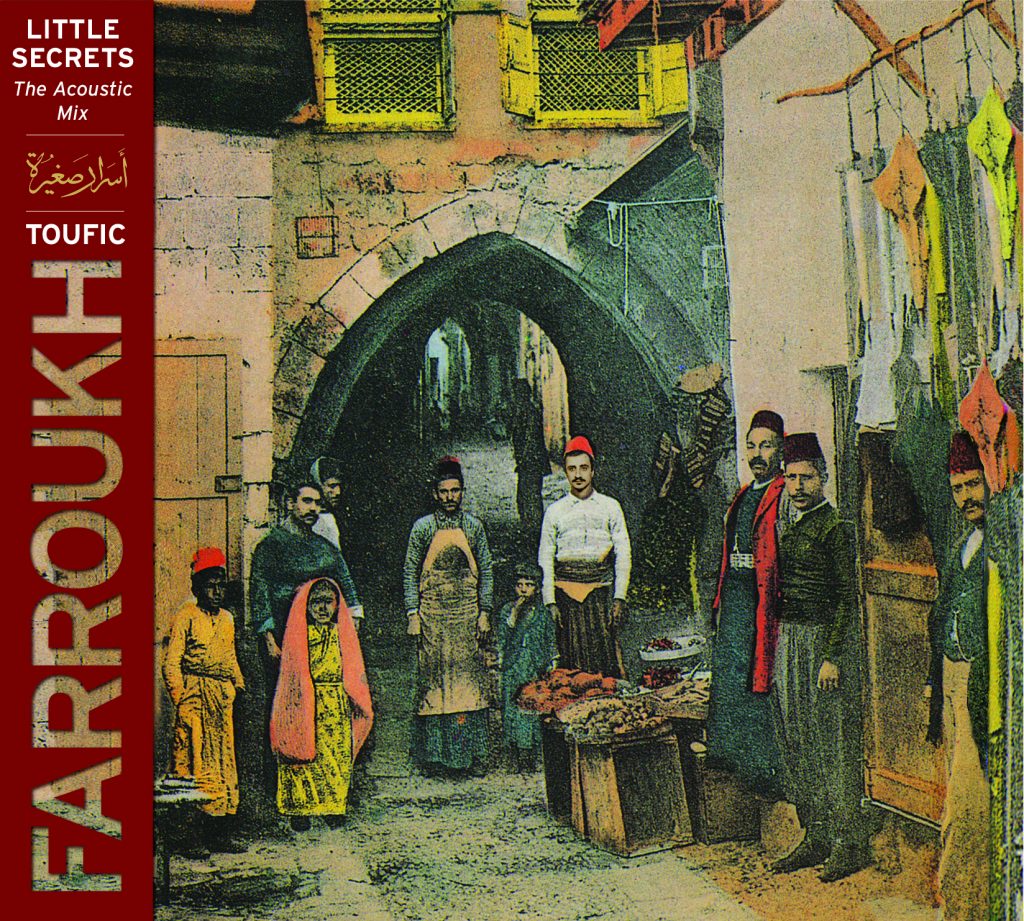
“LITTLE SECRETS” (1998)
Différent, coloré, ouvert aux croisements, Toufic Farroukh dessine désormais les contours d’un nouveau territoire dans la planète sons. La preuve, « Little Secrets », une fusion contemporaine qui offre un jazz aux accents orientaux très raffinés.
Dans ses compostions, Toufic Farroukh fait preuve du même éclectisme. “Little Secrets”, paru en 1998, fait appel aussi bien aux instrumentations “classiques” du jazz (saxophone, trombone, piano, …etc) qu’aux instruments traditionnels du Proche-Orient (Oud, Req, Ney ou Bouzouk) apportent une profondeur et une dimension qui va au-delà de la touche de couleur locale.
Composed, arranged & produced by Toufic Farroukh
Toufic Farroukh : Ténor & Soprano Saxophone, Bouzouk & Percussion ; Bassam Saba : Nay ; Charbel Rouhana : Oud ; David Venitucci : Accordion ; Leandro Aconcha : Acoustic Piano ; Serge Adam : Trumpet & flugelhorn ; Daniel Casimir : Trombone ; Jean Wellers : D. Bass & Acoustic guitar ; Etienne Brachet : Drums ; Cécile Daroux : flûte Basse ; Vincent Limousin : Vibraphone ; Adel Chamss : Req ; Sidney Thiam : Congas & udu.
Production: Toufic Farroukh
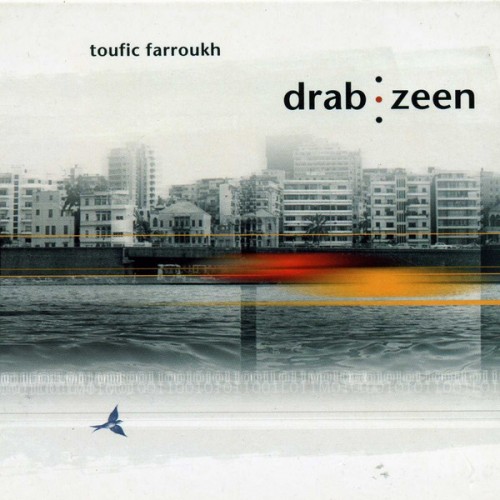
Drab Zeen (CDM / Harmonia Mundi 2002)
Toufic Farroukh rend hommage à son ami, l’artiste Joseph Sakre…
“Toute musique est plus ou moins pétrie d’horizons divers, cette évidence, Drab Zeen la prend non seulement totalement en compte mais il l’affiche ouvertement. L’ossature ne se dissimule pas, bien au contraire, le traditionnel, le jazz et l’électronique sont en quelque sorte la terre, l’argile et le limon dont se pétrit Drab Zeen. Seulement il ne s’agit pas ici de mélanger ces trois horizons, de les fondre l’un dans l’autre, mais d’établir une rencontre, de la provoquer.
Drab Zeen ne s’articule pas pour autant dans le conflit, il y a comme une fièvre de la rencontre avec tous les risques que cela comporte, une fièvre recherchée, voulue, véritable mise à nue. Ainsi, liberté a été accordée aux différents solistes, afin que jaillissent de nouvelles couleurs dans lesquelles puiser, permettant de (ré) pousser encore plus loin la structure première de chaque morceau. La ligne entre l’improvisation et le thème musical est tenue. L’improvisation se fait thème, et le thème sonne comme une improvisation. Et c’est à l’instar de tout ce travail d’ombre et de lumière sur lequel Drab Zeen est aussi bâti. Un instrument est mis en avant, un autre l’accompagne juste au-dessous, note après note, le suit exactement comme son ombre. S’opère alors un imperceptible glissement : tout en demeurant ombre, l’ombre se fait reflet. Elle se pare de l’habit de lumière, tout en demeurant ombre, insistons-nous. On sait ce qu’il est advenu de ceux qui ont perdu leur ombre”. Ghassan Salhab
Composed, arranged & produced by Toufic Farroukh
Bassam Saba – Ney ; Antoine Khalifé – violin ; Nabil Khalidi & Charbel Rouhana – Oud
Gueorgui Kornazov-Trombone ; Yasmine Hamdan – Voice ; Jean Wellers – D. Bass,viola & violin ; J.M. Huré – El. Guitar ; Ali Alkhatib – Riq ; Toufic Farroukh – Saxophones, bouzouk, Synth & percussion
Production – Radwan Hoteit & Toufic Farroukh
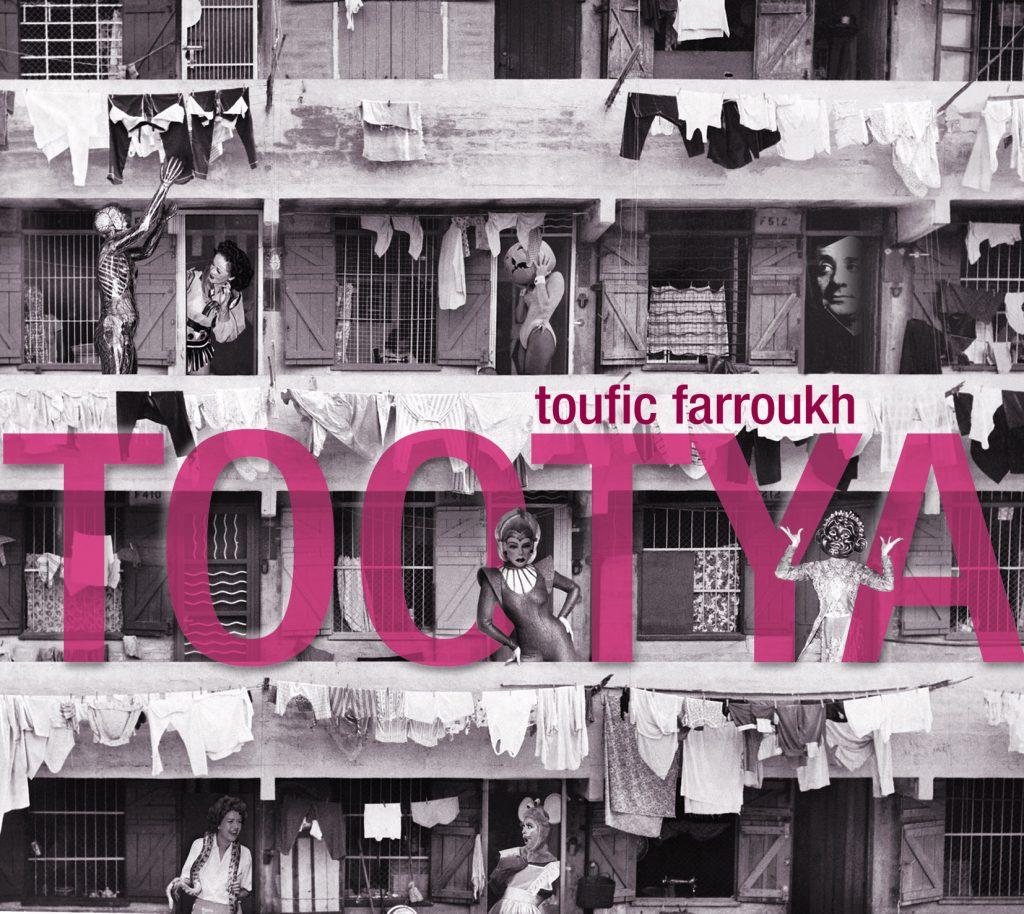
TOOTYA O+ music / Harmonia Mundi (2007)
“Le jazz sous des angles insolites. Voilà ce qui vient d’emblée à l’esprit à l’écoute de Tootya, le nouvel album de Toufic Farroukh. Le nouveau disque du talentueux saxophoniste Franco-libanais s’inscrit résolument dans le prolongement de son prédécesseur, le novateur DrabZeen, sorti en 2002. Pour Toufic Farroukh, l’analogie avec le voyage constitue un aspect prépondérant de Tootya. Tous les morceaux sont liés entre eux, mais il leur arrive de partir dans des directions opposées avant de se retrouver. Les solistes qui l’accompagnent, de Magic Malik à Ibrahim Maalouf en passant par les deux chanteuses Rima Khcheich et Jeanne Added, capturent un son moderne, entrelacée aux rythmes puissants, transmettent une passion intérieure et une joie teintée de nostalgie. Ce sont peut-être les morceaux instrumentaux qui donnent la meilleure idée de l’ambiance de Tootya. On remarque plus particulièrement ‘Radio City’ avec ses merveilleuses parties du trombone de G. De Masure et le Ney de J. Levitt, ‘Cendres’, et le subtile accordéon joué par D.Venitucci, et les Saxes de Toufic Farroukh, avec son phrasé économe, un son légèrement mélancolique et ses solos qui enrichissent un alliage de jazz oriental et de danse particulièrement réussi, Farroukh atteint ici une poésie similaire à celle dont il avait fait preuve sur son premier album, Ali On Broadway.”
Composed, Arranged & Produced by Toufic Farroukh ; Co-arranged by Leandro Aconcha
Production: Toufic Farroukh, Radwan Hoteit & Chill Island
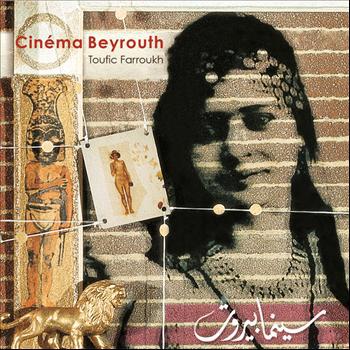
“Cinéma Beyrouth” CD enja / Harmonia mundi 2011
Dans le parcours de certains musiciens, il existe des œuvres charnières, qui sont comme des rendez-vous fixés par le destin au carrefour de l’art et de la vie, de l’aventure esthétique et de l’aventure humaine. Ces œuvres-là, qui convoquent autant l’esprit d’invention que la mémoire de leur auteur, sont les fruits d’une lente maturation ; elles portent en filigrane le récit d’une expérience, et la belle empreinte du temps qu’il aura fallu passer pour la vivre et la traduire en musique. Tel est Cinéma Beyrouth, le cinquième album du saxophoniste et compositeur franco-libanais Toufic Farroukh, qui est bien plus qu’une simple collection de pièces accolées les unes aux autres. C’est une véritable conversation intime entre un homme et sa ville natale, magnifiée par le recours à une instrumentation subtilement pensée et pesée : quatuor à cuivres, piano et batterie. Une conversation émaillée d’instants de tendresse et d’éclats, de moments d’abandon et d’élans lyriques, qui transcrit avec une remarquable clarté de ton la complexité de leur histoire commune.
Dans le regard de Toufic Farroukh, Beyrouth apparaît ainsi sous les traits d’une « énigme tragique ». Elle campe aussi une sorte de diva à la fois généreuse et exigeante, prête à accueillir ses anciens enfants pour mieux les vampiriser, les rudoyer, voire les rejeter. « C’est une ville qui peut tout te prendre et ne rien te donner…. Ce disque raconte aussi Beyrouth et ses caprices, sa confusion, cette ville où l’on trouve tout, le chaos, la religion, la guerre, les affaires… Ce Beyrouth qu’à l’âge de 10 ans je rêvais comme un lieu magnifique et magique n’est plus… »
Cinéma Beyrouth atteint ici une vérité nue et secrète qui est autant celle de son auteur que de son sujet. Richard ROBERT
Composed, Arranged & produced by Toufic Farroukh ; Co-arranged by Leandro Aconcha
Toufic FARROUKH, Saxophones ; Leandro ACONCHA, Acoustic Piano ; Sylvain Gontard & Nicolas Giraud, Trumpet ; Daniel ZIMMERMANN, Trombone ; Didier HAVET, sousaphone & Tuba ; Luc ISENMANN, Drums.
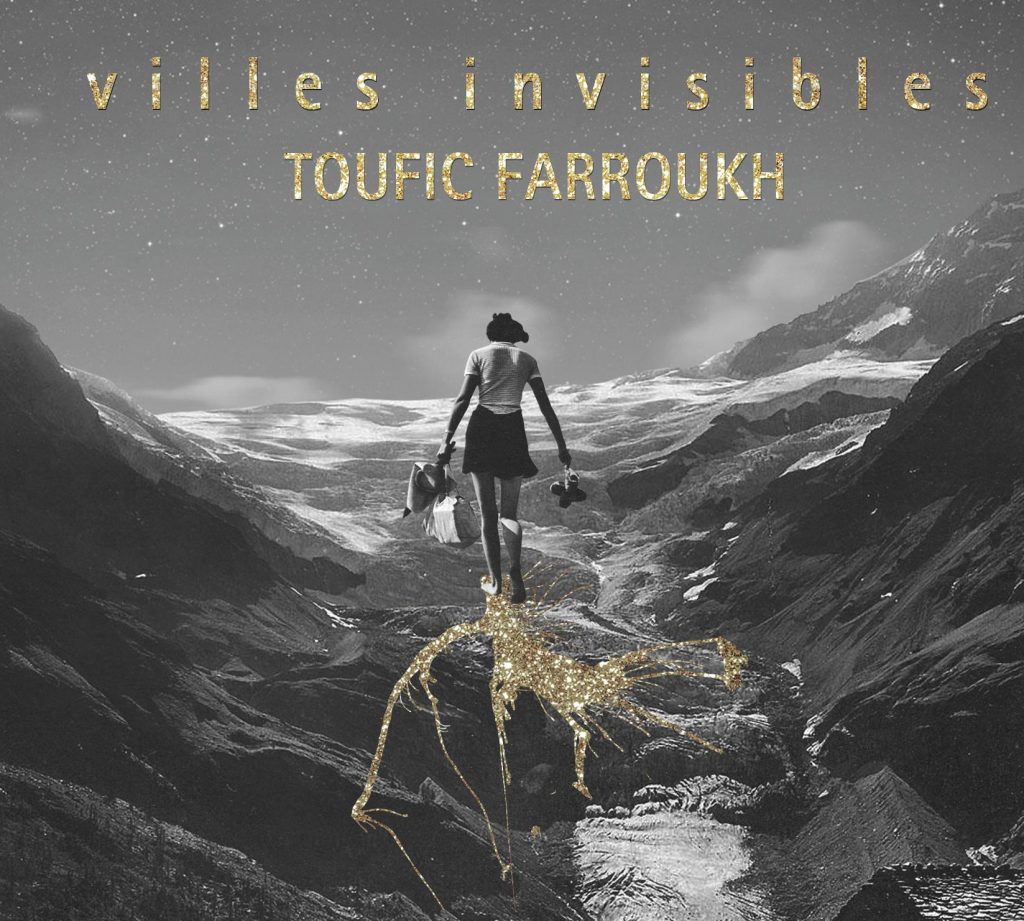
‘‘Villes Invisibles’’ Hot8 / L’Autre Distribution (2017)
Architecte de l’imaginaire
La musique de Toufic Farroukh est transportée par l’art de la conversation. Un dialogue habité de rêves d’un autre monde, celui où femmes et hommes sauraient vivre dans l’harmonie de cités enfin pacifiées. Face au saxophoniste-compositeur, la ville – ses secrets, sa beauté, ses mystères, son histoire – s’avance comme le sujet d’un échange envoûtant.
Pour élaborer Villes invisibles, dont Toufic Farroukh signe compositions et arrangements, celui qu’on peut qualifier de poète nomade a choisi de fermer les yeux et de rêver une ville pour tous. C’est là bien entendu une ville qui n’existe que dans le cœur de celles et ceux qui croient encore à la possibilité d’une vie sereine, où chacun pourra trouver sa place. Le titre du disque est emprunté au roman homonyme d’Italo Calvino dans lequel Kublai Khan, empereur des Tartares, se fait raconter les villes visitées lors de ses voyages par Marco Polo, des villes « faites de désirs et de peurs », aux secrets parfois bien cachés.
Toufic Farroukh, inspirateur d’un répertoire ouvert, laisse ses saxophones chanter à l’unisson des autres instruments, sans jamais chercher à avoir le dernier mot ni même céder à la tentation de l’exercice solitaire. On ne le répétera jamais assez : si la conversation est un art, Farroukh en est le serviteur fervent et humble à la fois. Denis Desassis
Composed, Arranged & Produced by Toufic Farroukh ; Co-arranged by Leandro Aconcha
Toufic Farroukh, saxophones soprano, alto et ténor ; Leandro Aconcha, piano et Fender Rhodes Didier Ithursarry, accordéon ; Ahmad Al Khatib, oud ; Frédéric Favarel, guitare ; Marc Buronfosse, contrebasse ; Luc Isenmann, batterie ; Bachar Khalifé, percussions ; invité : Naima Yazbek, chant .
Production : Toufic Farroukh & Radwan Hoteit.
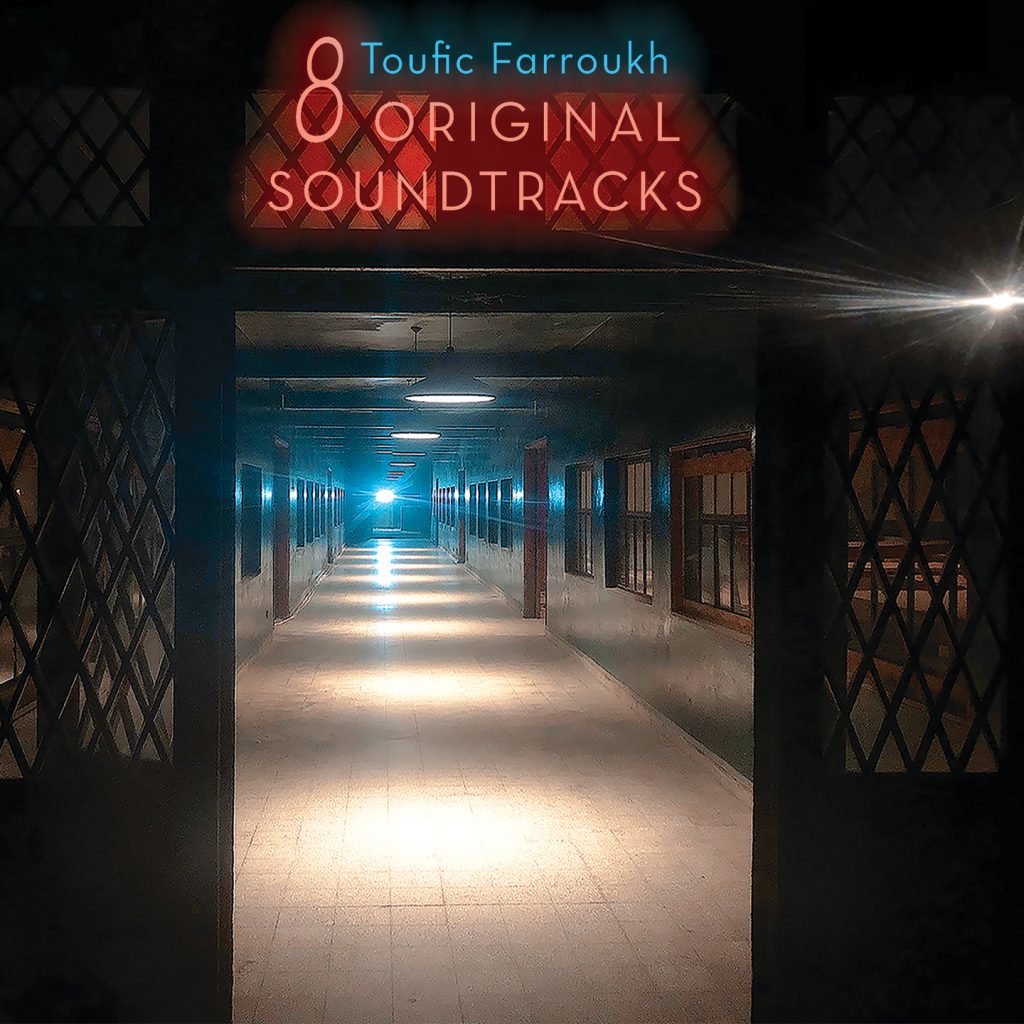
“8 Original Soundtracks” (Absilon2020)
« 8 Original Soundtracks », est le plus sûr moyen d’appréhender l’univers musical de Toufic Farroukh dédié au cinéma. Univers aisément écrit pour un grand ensemble (Al Mahd), transposable en plus organique pour quatuor à corde (Terra Incognita), ou avec une forme plus décontractée (Nour), mais toujours aussi précis et dynamique (Ladder to Damascus ou Un Homme d’Honneur). Un concentré des mélodies (Bonne à vendre ou Histoire d’un Retour), esthétique minimaliste très découpé (Falafel)…
« 8 Original Soundtracks » un double album qui donne des sonorités très particuliers et des tonalités très différentes. L’approche technique, le jeu, l’enregistrement même, est particulièrement sensible à l’écoute. Toufic Farroukh, privilégie une ligne claire comme une résonance à l’image que chacun pourra y voir un lien ou pas. Comme distancée avec elle-même, la musique nous entraîne dans des chemins enivrants, à la fois autonomes et parfaitement articulées entre elles.
Le cinéma, disait André Bazin, « substitue à notre regard un monde pour qui s’accorde à nos désirs » …. Et à nos oreilles ?!
HISTOIRE D’UN RETOUR (1994) un film de Jean Claude Codsi. TERRA INCONGNITA (2002) un film de Ghassan Salhab. BONNE A VENDRE (2006) un film documentaire de Dima al Joundi. AL MAHD (2006) un film de Mohamad Malas. FALAFEL (2006) un film de Michel Kammoun. UN HOMME D’HONNEUR (2010) un film de Jean Claude Codsi. LADDER TO DAMASCUS (2013) un film de Mohamad Malas. NOUR (2017) un film de Khalil Dreyfus Zaarour.
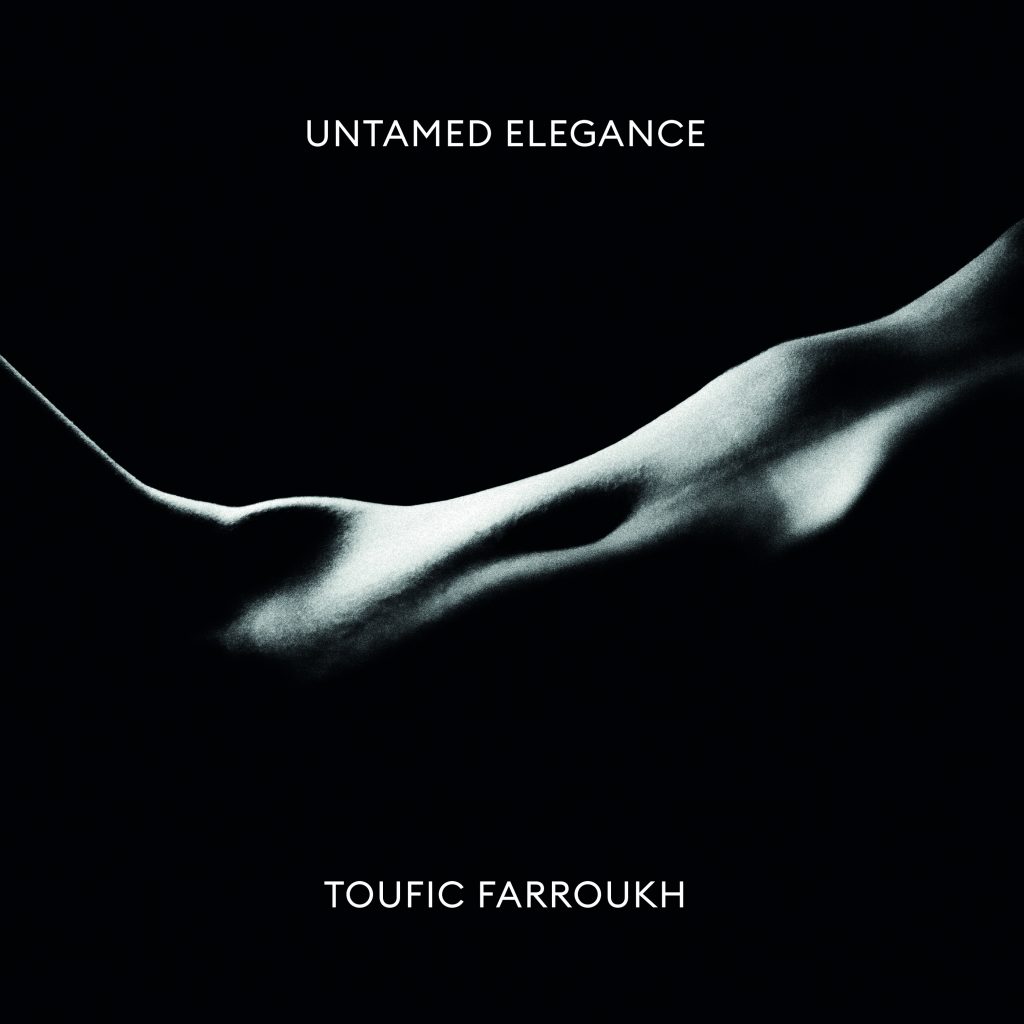
“Untamed Elegance“ (Scale Art & Culture / Bacodistrib 2023)
« Minutieusement et amoureusement construit, Untamed Elegance est un disque qui, non sans pudeur, dévoile les beautés discrètes et persistantes d’un grand voyage hors du temps et des modes. »
« La musique de Toufic Farroukh est multiple…L’acte de création commence toujours chez lui par une vibration sous l’influence d’une mélodie qui surgit, pour devenir très présente, et qui amènera naturellement avec elle la suite de la composition. Autant d’histoires que raconte cette musique élégante, et chez Toufic Farroukh, par-delà les vicissitudes de notre monde, il y a aussi la situation de son cher Liban et le va-et-vient constant entre temps de guerre et temps de paix – la vie veut croire qu’elle peut être belle.” Denis Desassis
Toufic Farroukh : Saxophones, Percussions, Leandro Aconcha : Piano, Claviers, Jean-Luc Lehr : Basse Electrique (sauf 3, 5, 7 et 8), Xavier Rogé : Batterie, Sylvain Gontard : Trompette, Bugle, Paco Andreo : Trombone, Benachir Boukhatem : violon, Justina Zajancauskaite : violon, Lilla Peron : Alto, Sary Khalifé : Violoncelle, Fanny Laignelot : Flûte, piccolo, Julien Chabod : Clarinette. Alberto Garcia: Chant (3), Nelson Veras : Guitare acoustique (3, 11), Marc Buronfosse : Contrebasse (3, 5, 7 & 8), Sophie Lascombes-Mayrand : Hautbois, Cor anglais (1), Cédric Bonnet : Cor (1), Ali Khatib : Req, Bendir (2, 3, 5), Walid Baba Nasser : Darbouka, Bendir (2, 3, 5).
Composed, Arranged & Produced by Toufic Farroukh ; Co-arranged by Leandro Aconcha